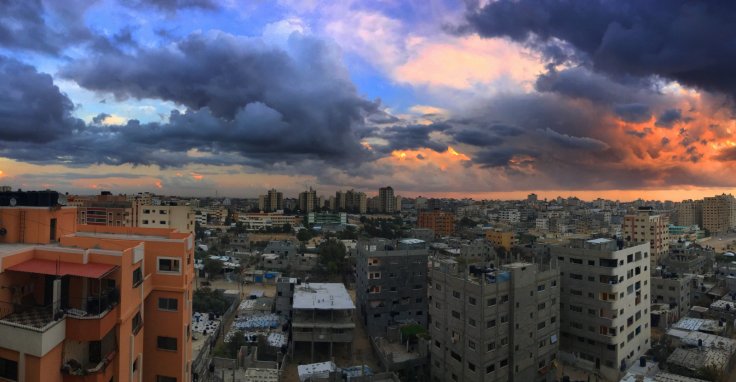A Palestinian committee has said that the closure of Kerem Shalom, the only commercial crossing on the borders between southern Gaza Strip and Israel, has resulted in substantial losses on the blockaded coastal enclave, which is already impoverished.
Jamal al-Khudari, chairman of the Popular Committee to Challenge the Israeli Siege, said in a statement Sunday that "Israel is escalating its illegal measure against the strip and preventing the entry of goods, fuel and building materials", reports Xinhua news agency.
"The further Israeli measures represent a grave danger to all commercial and industrial sectors in the impoverished coastal enclave," he said, stressing that all Palestinians will be affected by the "collective punishments" imposed by Israel, amid the coronavirus pandemic.

Shortage of Fuel for Power Plant
The chairman pointed out that the humanitarian situation in Gaza has been deteriorating, noting that 80 percent of the people live under the poverty line, while the rate of unemployment has reached 60 percent. Last week, the Palestinian Energy and Natural Resources Authority (PNERA) had warned that the Gaza Strip's only power plant would run out of fuel due to the closure of the crossing.
Power supply deficit in the coastal enclave is over 75 percent, according to the statement by PNERA, which could cripple all aspects of life in the blockaded Gaza Strip. On August 11, Israel closed the crossing after militants in the besieged Palestinian enclave launched incendiary balloons into Israeli territory.
Hamas Blamed for Balloon Attacks
In this attack, there were more than 30 fires. Launching incendiary balloons into Israel caused large fires in the agricultural fields and farms in southern Israel and the vicinity of the border areas between Gaza and Israel.
Besides closing the border crossing, Israel has also halted fuel supply and reduced Gaza's fishing zone in retaliation. The Israeli government has held the Islamic Hamas movement responsible for launching the balloons that caused fear to the populations and severe damage to the agriculture sector.








